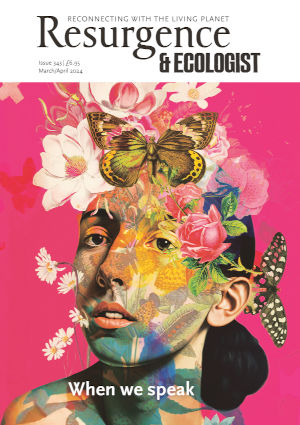Sheep, of all animals, might be surprised to discover they are the subject of online chatter. Yet dip into farming-linked content on the site formerly known as Twitter, and it likely won’t be long before you stumble upon a strident opinion about these creatures and their impact, from celebration (see James Rebanks) to concern (see George Monbiot).
Farmer and writer Rosamund Young is in the former. Her bestselling book The Secret Life of Cows documented life on her and her brother’s organic farm on the Cotswold escarpment. Here the primary focus was their large herd of pedigree Ayrshires. In her charming new collection of anecdotes, The Wisdom of Sheep & Other Animals, it is her play-loving, colour-picky, mood-aware flock who get headline billing.
It is an ideal book for cosying up with on bleak winter days. Or, even better, returning to after a bracing walk in Britain’s controversially sheep-shaped outdoors. And, coming from a leading example of organic farming, Young’s insights feel key to finding a better balance between the needs of Nature, farmers and our national diet. Her advocacy of humane husbandry is much needed, as is her concern about “our interference with Nature for commercial gain”. The Sustainable Food Trust, in whose newsletter parts of this book were originally published, is also an important voice in these discussions.
Yet I was somewhat disappointed not to read more about this challenging agricultural context in her latest book. The Wisdom of Sheep includes no mention of the need to eat less meat to keep within planetary boundaries. Or of the government’s new funding schemes, which promise to reshape UK livestock farming – with as yet uncertain results. Instead, Young seems to have decided to leave much of the above to social media and the newspapers. That said, her retelling of their farm’s struggle with the payment schemes of the 1980s is an important reminder that these difficulties are not new. And their journey also offers hope that some bureaucratic obstacles can, with effort and ingenuity, be surmounted.
Moreover, whilst the book keeps farming’s existential battles at arm’s length, it arguably helps build something even more important: a love for Nature and all who thrive in her. That may sound schmaltzy, but I’ve dared myself to write it because Young is so generous in sharing her experiences and deserves no less in return. Whether describing sitting wide-eyed in a wildflower meadow, or the surprise of a bedraggled fox being given shelter in a sheep barn, her writing is a heartening and uplifting hymn to the British countryside – a place from which too many of us are now disconnected.
Helping others regrow this connection is also key to protecting these landscapes, Young implies. Putting this impulse into practice, however, is not always straightforward, as hinted at in a passage about the difficulty of “tweaking the footpath network” to give walkers better access.
Into this fraught and important space of land management’s future, Young thus introduces a simple truth: don’t make assumptions about a group. Many assume that sheep are interchangeable members of a flock, but they are “as individual as we are”, she writes. And, by extension, her book serves as a reminder not to make assumptions about humans either. Perhaps especially farmers, who are as varied in their needs and values as the creatures they tend.
The Wisdom of Sheep & Other Animals: Observations from a Family Farm by Rosamund Young. Faber & Faber, 2023. ISBN: 9780571368259.






